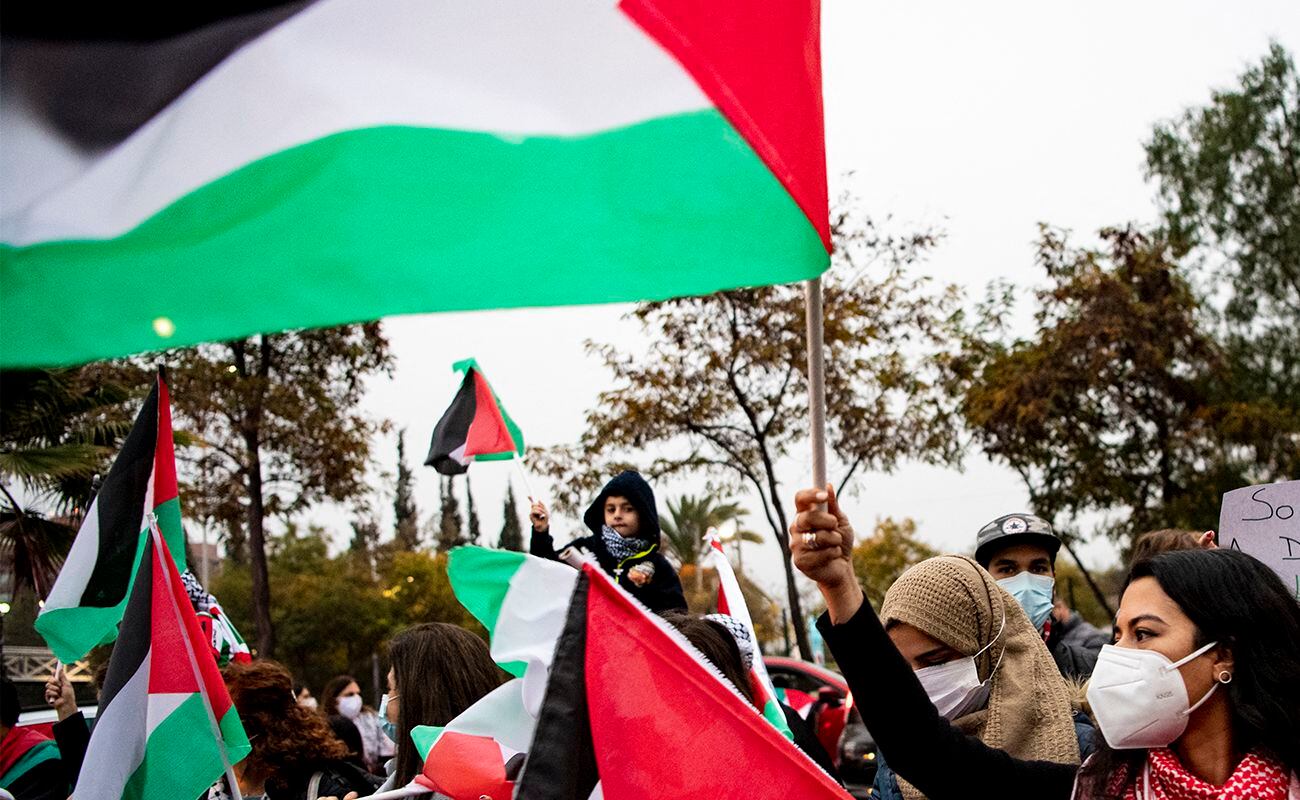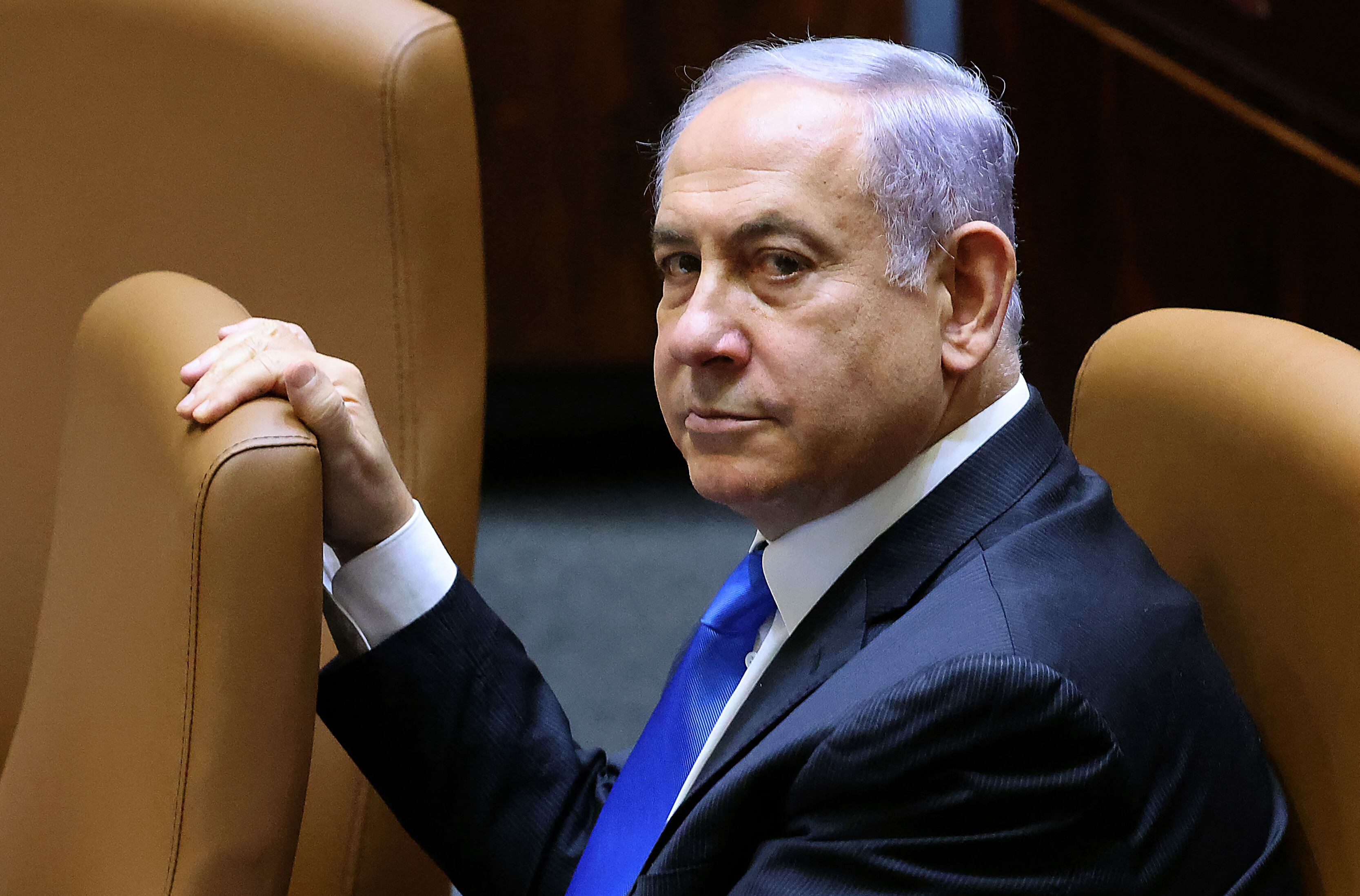A decision that has already been announced. Spain, Ireland and Norway have confirmed that on Tuesday, May 28, they will recognize the existence of Palestine as a State, in the midst of the war that Israel has been waging for more than seven months against the terrorist group Hamas, in the territory of Gaza.
In recent weeks, Spain has assumed a central role in promoting the proposal for recognition of the State of Palestine in different European countries.
READ TOO: Who is Ayatollah Ali Khamenei and what is his true power in Iran?
Norway was the first to communicate the recognition decision through Prime Minister Jonas Gahr Støre, who assured that “in the Middle East there can be no peace if there is no recognition”.
Then it was Ireland’s turn. Prime Minister Simon Harris called it “a historic and important day for Ireland and Palestine”. In turn, the president of the Spanish government, Pedro Sánchez, indicated that the recognition “is not an act against anyone, it is not against the Israeli people”, continuing to recognize that the war against Hamas is legitimate.
Israel’s reaction was immediate.
Benjamin Netanyahu’s government opposes the creation of a Palestinian state and has withdrawn its ambassadors to Norway, Ireland and Spain. “History will remember that Spain, Norway and Ireland decided to award a gold medal to the murderers and rapists of Hamas,” said Foreign Minister Israel Katz.
Analyst Francisco Belaunde Matossian indicated The trade that the recognition that was made is a political gesture that did not please the Israeli government, since “many Israelis take any decision of this type as a kind of anti-Semitism or denial of the legitimacy of the State of Israel”. “They put themselves in a very defensive position. They are two totally different things, one thing has nothing to do with the other,” he says.
TO LOOK: Operation Gedeón: 20 people sentenced to 30 years in prison for failed maritime incursion in Venezuela
What does it take to be recognized?
To date, it is estimated that three quarters of the world’s countries recognize the Palestinian State, since in 1988 Palestinian leader Yasser Arafat proclaimed its formation as a State independent of the capital of Algeria.
More than 35 years later, several nations on all continents have recognized this state, reported the AFP agency, and it is administered by the Palestinian Authority.
To this day. 142 of the 193 member countries of the United Nations (UN) recognize the existence of the Palestinian State, and among them is Peru. Since 2011, during the government of Ollanta Humala, the Peruvian State has recognized the existence of the Palestinian State, being the last country in the region to do so.


But what does it take to be considered a State? In a report by the EFE agency, professor of international law Eduardo Trillo indicates that to recognize a State a defined population, a delimited territory and a government are necessary, and that “in the case of Palestine, no assumption is satisfied now because there are no international borders established.”
TO LOOK: “Both are in the phase of not giving in an inch”: Milei vs. Sánchez and the growing tension between Argentina and Spain
In conversation with this newspaper, Belaunde Matossian highlights that a distinction must be made between the recognition of a State by a country and the fact that it is part of the UN.
“It is an act that depends on each country. It’s not that you have to go to the United Nations and wait for approval. For the issue of the United Nations, it is that there is a majority of countries that are in favor and, furthermore, that there is no veto from the five countries that have this right in the Security Council”, indicates the analyst, and these five countries are the United States, Russia, China, France and the United Kingdom.
Currently, the State of Palestine has the status of Permanent Observer State at the UN. Even so, the formation of its territory remains pending.
A war and international pressure
There is still a long way to go until the full recognition of the Palestinian State. Powers such as Germany and France still maintain their observations on this decision.
According to the AFP agency, the French Minister of Foreign Affairs, Stéphane Séjourné, indicated that the recognition of Palestine “is not a taboo for France”, but the decision must be “a diplomatic tool at the service of the two-state solution that coexists in peace and security”. On the German side, it was considered that the recognition of Palestine should be the result of direct negotiations between the conflicting parties.
And the main adversary is the United States. Along these lines, President Joe Biden indicated that he opposes “unilateral recognition”. This was indicated by Adrienne Watson, White House spokesperson. “A State of Palestine must be achieved through direct negotiations between the parties and not through unilateral recognition,” he said.
But for analyst Belaunde Matossian, this political gesture of recognition also reveals international pressure on Israel.
“What is happening in Gaza is so atrocious that there are many countries that have taken into account wait This decision, let’s see what happens next, for now is a way of saying that it cannot be tolerated. It is also a message for Israel”, he indicated.
TO LOOK: What might happen if the International Criminal Court orders the arrest of Netanyahu and Hamas leaders?
Added to this is Israel’s lack of clarity about what will happen in Gaza after its occupation, which has generated internal pressure, such as the warning from Benny Gantz (member of the War Cabinet) to leave the Israeli government if it stops at 8th. Until June there is no post-war plan for Gaza.
“There are many internal and external tensions for Israel. You have to be very careful with what you do”, comments the expert in international politics.
For now, the war continues in Gaza, after the attack carried out by the terrorist group Hamas on October 7. In mid-May, the UN reported that there are more than 35 thousand dead, of which 25 thousand have been identified, and 60% are women and children. On the other hand, in the Rafah area, south of Gaza, around 450,000 people have fled since the first week of the month following the announcement of an intervention by Israeli military force.
Source: Elcomercio
I am Jack Morton and I work in 24 News Recorder. I mostly cover world news and I have also authored 24 news recorder. I find this work highly interesting and it allows me to keep up with current events happening around the world.

:quality(75)/cloudfront-us-east-1.images.arcpublishing.com/elcomercio/3CWKLWZLY5HPJNY5EHVUECGJLQ.jpg)





